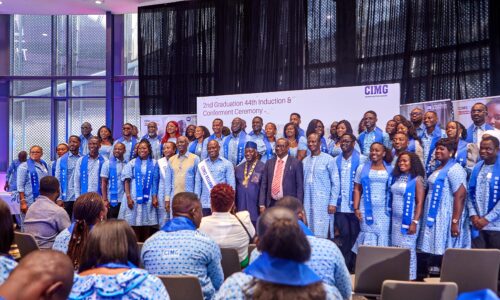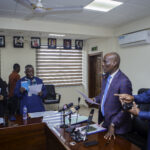
Championing Women’s Inclusion in Ghana
For a nation often celebrated as a beacon of progress in West Africa, Ghana still grapples with a glaring imbalance. Women make up 50.7% of the population, yet their presence in leadership, policy-making, and other critical sectors remains disproportionately low. Only 14.5% of parliamentary seats are held by women, and fewer than 8% of CEOs in corporate Ghana are female. These numbers paint a troubling picture. Why does such a gap persist in a nation that prides itself on democracy and development?
Historically, Ghana’s socio-economic and institutional frameworks have favored male leadership, creating barriers that persist today. For example, only 2% of bank CEOs in Ghana are women, and fewer than 15% of executive positions in the broader financial sector are held by women. Recognizing this gap, the Credit Union Association of Ghana (CUA), the umbrella organization for cooperative credit unions in the country, made a strategic decision to prioritize women’s inclusion within the credit union movement. Their leadership acknowledged the need to actively encourage women to take on leadership roles and participate in decision-making processes at all levels of the movement. To establish a clear roadmap, CUA conducted a baseline study in early 2024 to assess the needs of female credit union members (and non-members) as well as the representation and challenges faced by women throughout the credit union movement.
Their findings highlighted significant challenges, including low female leadership participation, deeply rooted cultural and institutional barriers, and limited influence in key decision-making spaces.
Determined to transform this reality, CUA collaborated with Deutsche Sparkassenstiftung für Internationale Kooperation (DSIK), a German organization dedicated to providing proactive support to financial institutions worldwide. Together, they sought a structured approach to women’s inclusion in Ghana’s credit unions.
To bring this vision to life, MGA Consulting was contracted to develop and implement a Women Inclusion Framework, a strategic initiative designed to move beyond awareness and create real change by reshaping policies, leadership structures, and institutional practices within the credit union movement.
As the lead consultant at MGA Consulting, our mission was clear: to move beyond rhetoric and develop a concrete framework for increasing women’s participation and leadership in Ghana’s credit union movement. To achieve this, we conducted a thorough policy review, developed policies for women’s inclusion, and crafted a sensitization strategy to educate leadership, management, and staff on the benefits of gender inclusivity. A key component of our approach was the Women Leadership Program, which was designed to identify and train female leaders while providing mentorship and coaching to prepare them for decision-making roles.
Our approach has been deeply collaborative, involving close work with CUA leadership, the Board of Directors (including the women representative), selected credit unions, and DSIK.
We are now conducting a training-of-trainer (ToT) program, a final stage of the project, to ensure that CUA’s staff and leadership can sustain and scale these initiatives long after the project’s official conclusion. Our focus is not just on individual empowerment but on creating a systemic shift where women’s representation in governance, decision-making, and financial leadership becomes the norm rather than the exception.
Through this process, one thing has become clear: women’s inclusion is an economic and institutional necessity. I have witnessed the urgency and significance of this work at every stage. This is why the passage of the Affirmative Action (Gender Equality) Bill 2024, is so timely and essential. The bill aims to remove systemic barriers, enforce gender-balanced leadership, and create accountability for lagging institutions.
It aligns perfectly with our efforts at CUA. However, legislation alone is not enough; it requires active, strong institutional commitment and a shift in mindset.
MGA Consulting seeks to drive institutional transformation. Our expertise lies in developing strategic frameworks, conducting in-depth research, and delivering impactful capacity-building programs. This project with CUA is just one example of how MGA Consulting partners with organizations. We bring proven expertise, a deep understanding of the local context, and a commitment to measurable impact. For institutions looking to embed women’s inclusivity, strengthen governance, or drive meaningful change, MGA Consulting is the trusted partner to make it happen.
I would like to commend the support of CUA Leadership: Cyprian K.A Basing – CEO, Dr. Solomon Nyarko Owusu – DMD, and Stella Tasa Mawunyo – Head of Supervision; DSIK, represented by: Peter Schüßler, and the contributions made by our consultants, Habiba Sumani, Vera Baffoe, and Mercy Azoomah, for making the project a success.










